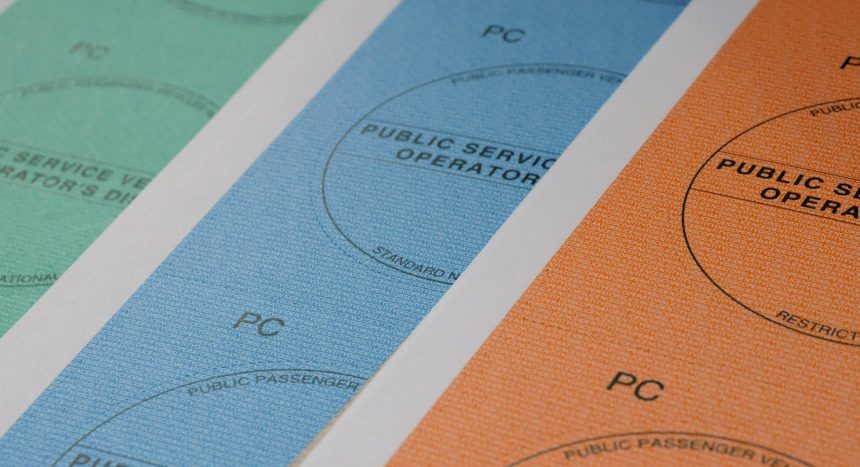Laura Hadzik, Head of Commercial Road Transport at JMW addresses concerns over ‘propose to revoke’ letters and what the new Employment Rights Bill will mean for coach and bus operators
I recently had a DVSA Desk-Based Assessment (DBA). DVSA identified shortcomings in our compliance management systems, and the outcome was “unsatisfactory”. I have now received a letter from the Traffic Commissioner stating that they are considering revoking our O-Licence. What do I need to do?
The letter you have received is what we refer to as a “propose to revoke” (PTR) letter.
- I recently had a DVSA Desk-Based Assessment (DBA). DVSA identified shortcomings in our compliance management systems, and the outcome was “unsatisfactory”. I have now received a letter from the Traffic Commissioner stating that they are considering revoking our O-Licence. What do I need to do?
- What does the review of parental leave mean for operators?
It notifies you that the Commissioner is considering revoking your O-Licence because they believe you no longer meet the requirements for holding it – in this case, due to the shortcomings found in your compliance systems.
Until recently, where there were any such compliance systems shortcomings, the Traffic Commissioner would usually call the operator to a public inquiry to address the issues and consider whether to take regulatory action – which might include revocation of the O-Licence.
Now, though, we are now seeing an increasing use of PTR letters where DVSA investigations find shortcomings in an operator’s compliance systems, and the outcome is marked “unsatisfactory” or “report to OTC”.
This is a significant change in the Traffic Commissioners’ approach (as they are proposing to revoke the O-Licence without first calling a public inquiry) that shifts the onus to the coach or bus operator to request a public inquiry. If you do not request a public inquiry, your O-Licence is likely to be revoked without further notice to you, meaning you would be unable to operate vehicles until you had applied for, and been granted, a new O-Licence. It is therefore crucial that you respond to the PTR letter correctly.
We suggest the following approach:
- Regularly check that your correspondence addresses/emails on VOL are up to date.
- Respond promptly – PTR letters come with strict (and short!) deadlines.
- Always request a public inquiry – this prevents the Traffic Commissioner revoking your O-Licence without first hearing your case at public inquiry (where they may in fact conclude that no, or lesser, action is appropriate).
- Be pro-active – investigate all compliance issues and shortcomings (no matter how minor) and take remedial action at the earliest opportunity.
- Be thorough – ensure your response to any DBA or shortcomings found during a DVSA investigation is as comprehensive as possible and supported by evidence.
- Engage specialist legal advice at the outset – usually such advice achieves better outcomes.
What does the review of parental leave mean for operators?
The government has launched a comprehensive review of parental leave and pay rights, a move that could significantly impact employers. Led by the Department for Business and Trade (DBT) and the Department for Work and Pensions (DWP), the review will examine all forms of parental leave – from maternity and paternity to shared parental, adoption, and bereavement leave.
This initiative comes as the Employment Rights Bill nears completion in the House of Lords. The Bill proposes to make paternity and unpaid parental leave a “day one” right, removing qualifying periods and, as such, potentially encouraging more employees to take advantage of these entitlements.
For operators, where operational and workforce planning are crucial, these changes could present both challenges and opportunities. The review aims to create a system that supports parental wellbeing, promotes gender equality, and enables more parents to remain in work. However, the government is also considering cost implications and fairness.
Financial constraints remain a major barrier to leave uptake, particularly among fathers. Fifty-nine per cent of fathers take paternity leave (70% of employee fathers), of which three-quarters took their full two-week entitlement, with the average length of paternity leave being 1.7 weeks. Such figures are likely to shift if statutory pay is increased.
Operators should prepare for potential reforms by reviewing current parental leave policies, assessing workforce flexibility, and engaging with the government call for evidence (open until 25 August).
With the review set to conclude in late 2026, now is the time for operators to stay informed and proactive in adapting to a more inclusive and supportive parental leave framework.
[Answers by Laura Hadzik, JMW Partner, and Laura Wharton, JMW Partner]

























